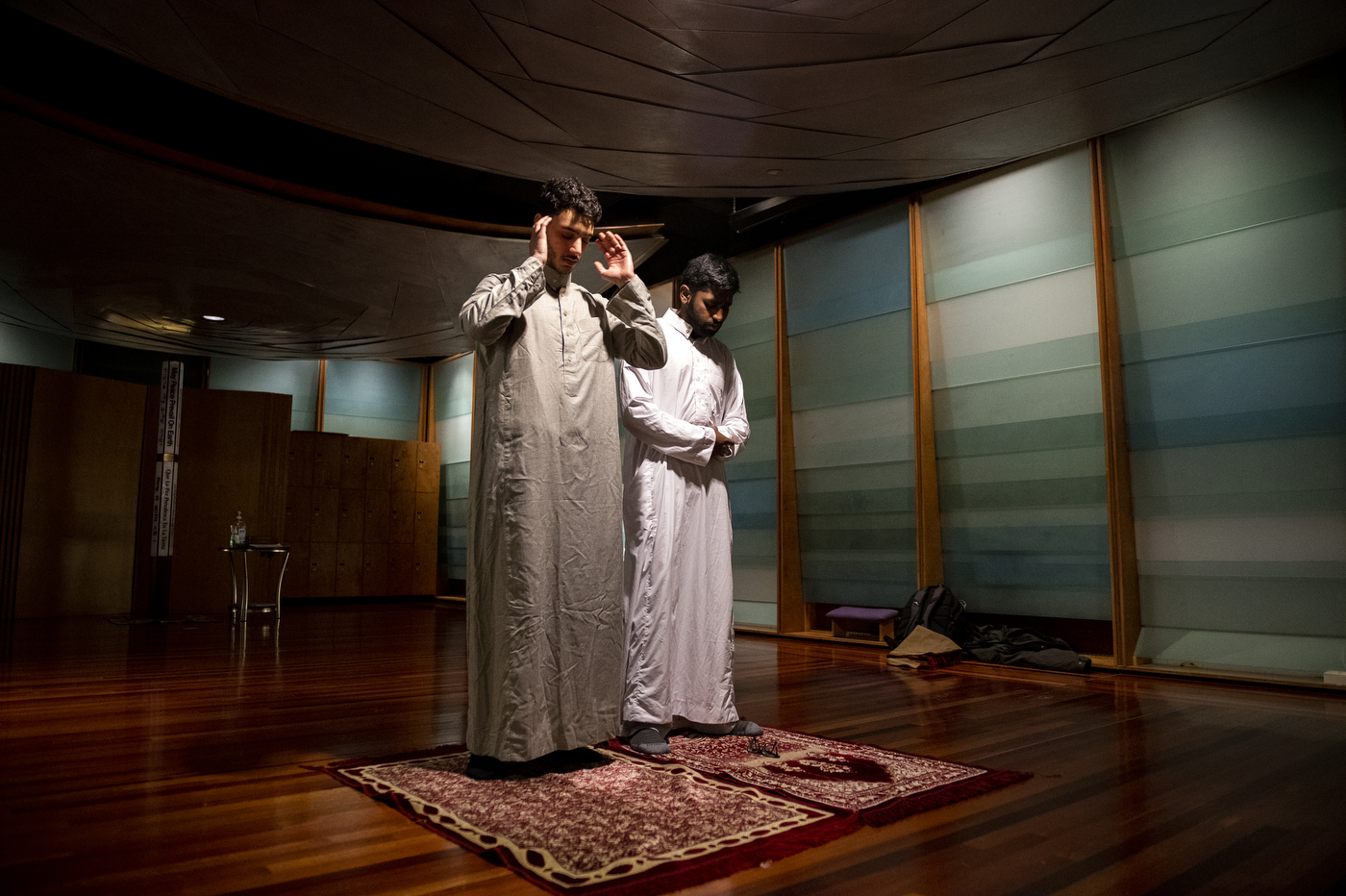The Muslim holy month of Ramadan, which begins Friday evening, is known as a time of fasting during daylight hours. But there is so much more to the holiday, say student members of the Islamic Society of Northeastern University (ISNU).
“I’ve been counting down the days,” says Laila Kibodya, a first-year behavioral neuroscience student from Springfield, Massachusetts. “People don’t understand the spiritual gain you get from the month. After years of doing it over and over again, food is the last thing on my mind. It’s more, ‘How can I be a better Muslim this month? What habits do I want to start practicing during the month—and hope to keep after the month?’”
Muslims celebrate Ramadan as the month when God began to reveal the Quran’s initial verses to the Prophet Mohammed.
“We believe the devil is locked up [during Ramadan] and so, if you do a good deed, it’s going to be multiplied 70-fold,” says Shoyaib Shaik, the co-president of ISNU and a second-year student in bioengineering and biochemistry. “We’re making that effort to do as much as we can, to maximize our time. I spend a good portion of it by studying the Quran, by diving deeper and learning more about the religion.”
Charitable giving is another way of connecting to the spirit of Ramadan. The discipline of fasting contributes to feelings of empathy for those who don’t have food, says Omar Shoura, a second-year student in computer science.
“If you’re able to withhold the most basic desire, which is food, then you’re training yourself to be able to withhold yourself from other desires that are taking away from your worldly and your spiritual goals,” says Shoura, who serves as the community outreach coordinator at ISNU. “To me, that’s the biggest training from fasting.”
Read more on News@Northeastern.
Photo by Alyssa Stone/Northeastern University.

